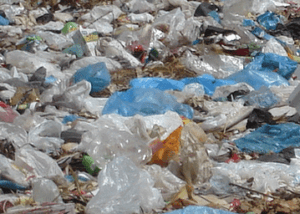Coca-Cola says it has invested over $5m to tackle plastic pollution across Africa
 The Coca-Cola Company says it has invested more than $5 million to tackle plastic pollution across the African continent. Plastic pollution has been identified as one of the major threats to the global environment, and in response of which some countries are banning single use plastic items and products.
The Coca-Cola Company says it has invested more than $5 million to tackle plastic pollution across the African continent. Plastic pollution has been identified as one of the major threats to the global environment, and in response of which some countries are banning single use plastic items and products.
In a press release copied to ghanabusinessnews.com, Coca-Cola says it is on track to spend a third of its $38 million pledge before the end of 2019. The company in December 2018 committed to invest $38 million over three years to stimulate polyethylene terephthalate (PET) plastic collection and recycling in Southern and East Africa as part of its local effort to achieving a global World Without Waste vision.
“World Without Waste is an ambitious global Coca-Cola goal to help collect and recycle a bottle or can for every one it sells by 2030,” the release said.
The company, according to the release has since the beginning of this year, together with its bottling partners has invested $5.125 million to boost recycling industries across eight countries.
“PET collection and recycling rates are steadily increasing. As a percentage of the PET plastic it sells, the Coca-Cola system in Southern and Eastern Africa is forecasted to close 2019 with an average collection and recycling rate of 80 per cent, led by South Africa at 114 per cent,” it indicated.
Coca-Cola notes that PET recycling industries have been established in Kenya, Mozambique, Namibia, South Africa, Tanzania, Uganda, Zambia and Zimbabwe on the back of industry collaboration and funding kick-started by the company and its main bottling partner across Africa, Coca-Cola Beverages Africa.
World Without Waste is a Coca-Cola goal to help collect and recycle a bottle or can for every one it sells by 2030. Additionally, the Coca-Cola Company will create packaging that contains at least 50 per cent recycled material by 2030, meaning less virgin material will be used. The company will also continue pursuing the goal to make all consumer packaging 100 per cent recyclable by 2025, it added.
By Emmanuel K. Dogbevi
Copyright ©2019 by Creative Imaginations Publicity
All rights reserved. This article or any portion thereof may not be reproduced or used in any manner whatsoever without the express written permission of the publisher except for the use of brief quotations in reviews.
